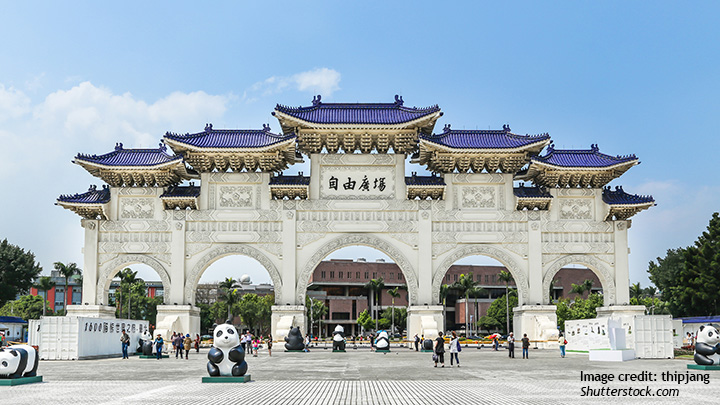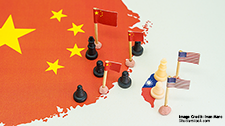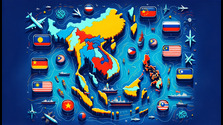Taiwan and the Diplomatic Squeeze

Larissa Stünkel
In mid-March 2023, the self-governing island of Taiwan lost another one of its already few diplomatic allies. Announcing the severing of diplomatic ties between Taiwan and Honduras on Twitter on March 15, Honduran president Xiaomara Castro noted that she had indeed instructed her Foreign Minister, Eduardo Reina, to formally establish ties with the People’s Republic of China (PRC). Reina set out for an official trip to Beijing about one week later, joining his Chinese counterpart Qin Gang for an attention-grabbing signing ceremony at Diaoyutai State Guesthouse in the Chinese capital. For the Chinese Communist Party, the decision made by Castro serves as yet another small victory in the diplomatic tug-of-war between the mainland and the island of Taiwan.
As the dust of diplomatic struggling in Honduras starts to settle, it appears ever more obvious that Taiwan remains perpetually exposed to diplomatic derecognition, especially as Beijing seems ever more determined to ramp up pressures on Taipei’s remaining allies. Nevertheless, the Honduran case, besides shedding light on the inherent fragility of diplomatic recognition for Taiwan, also arguably exposes a more complex web of factors leading to derecognition, apart from direct Chinese pressure. With two other allies – Guatemala and Paraguay – heading to the polls in the coming months, Honduras’ fate might offer valuable lessons for their respective diplomatic trajectories.
Read this blog piece by Larissa Stünkel at De Facto States Research Unit.
Related Publications
-
China as a Black Sea Actor: An Alternate Route
China’s international role has expanded rapidly in the last decades, and the Greater Central Asian region, Europe, and the Middle East, to which the Black Sea region (BSR) connects, are […]
-
Taiwan-PRC Crisis: What Cross-Strait Conflict Could Cost Europe
The escalating tensions between Taiwan and China pose significant economic and strategic challenges to the European Union, such as the inaccessibility of Taiwanese inputs, market, and capital. This issue brief […]
-
Strategic Standoffs: How Repeated Games Illuminate the Future of South China Sea Disputes
Introduction The motivation to put this piece together was observing the recent bizarre and, dare I say, childish behaviour of the Chinese Coast Guard in the South China Sea (SCS), […]
-
Risk Reduction and Crisis Management on the Korean Peninsula
The situation on the Korean Peninsula is inherently intertwined with the growing instability of the East Asian security environment, where high tensions significantly increase the risk of unintended incidents and armed […]
-
Connecting Taiwan and Finland: An Interview with Prof. Julie Yu-Wen Chen
Julie Yu-wen Chen is Professor of Chinese Studies at the University of Helsinki in Finland. Since 2023, she has been involved in the EU twinning project “The EU in the […]




